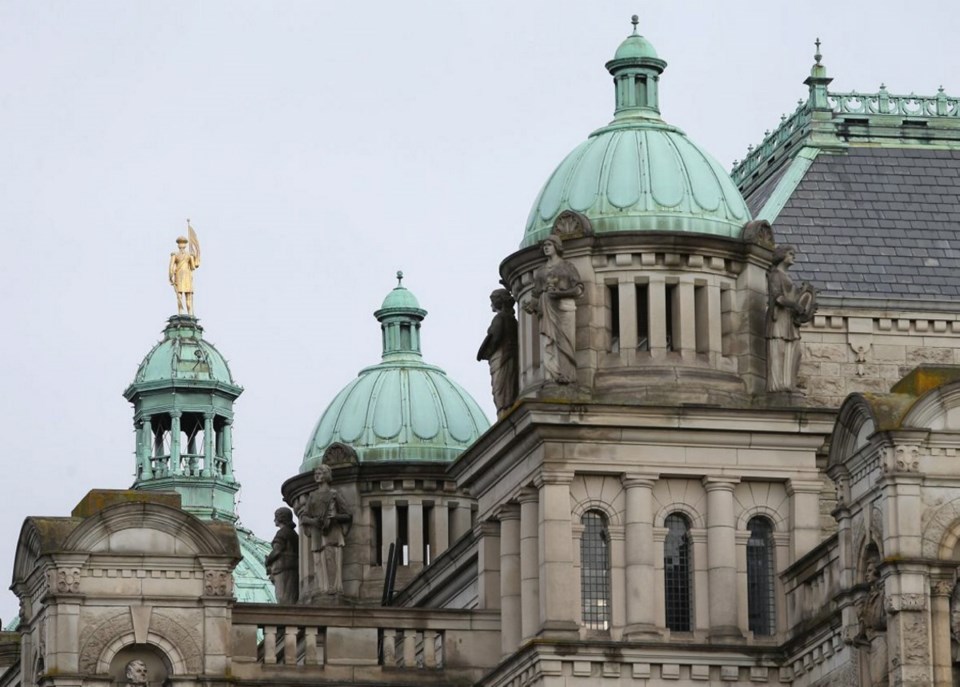Finance Minister Mike de Jong has just released the province’s second quarterly report. Like Paul Martin (when he was former prime minister Jean Chrétien’s finance minister), de Jong has perfected the delicate art of not quite fibbing in his annual budgets, while in reality, coming as close as he can.
Back in March, the finance minister projected a yearly surplus of $264 million. This most recent update lifts that figure to a whopping $2.242 billion — eight-and-a-half times more than his budget estimate.
That’s not an error, and neither is it mere prudence, though some of the latter is involved. It’s battlefield preparation, the battle in question being next May’s provincial election.
For months, the B.C. Liberals have been making spending announcements from a bag of cash no one quite knows the size of. It’s like playing poker without your opponents knowing how many chips you have. They’re never sure if you can out-raise them.
That said, and since I’ve written hard things about this government’s addiction to borrowing, there are positive signals in the update.
In particular, taxpayer-supported debt levels are down, though slightly, for the first time in years. (Or at any rate, so it appears. Ever since the auditor general adopted a system of bookkeeping based on Klingon accounting, no one knows what our financial statements mean.)
But fair is fair. It does look like our program borrowing has fallen.
And the economic numbers are genuinely impressive. The province’s GDP expanded 3.3 per cent in 2015, and is forecast at 2.9 per cent in the current year.
Compare that to the country-wide “growth” rate — a pathetic 0.9 per cent in 2015, and 1.3 per cent this year.
Those national figures are due, of course, to oil-industry woes in Alberta and Saskatchewan. (Note to the Greens: This would be the permanent reality were your policies ever adopted.)
More than 70,000 new jobs have been created across B.C., and housing starts increased 32.7 per cent over the same period last year.
These numbers are not just indications of an economy catching fire after almost a decade in the doldrums. They’re a reward for years of tough-minded management by Christy Clark and her predecessor, Gordon Campbell. If they had tried to spend their way out of the 2008 recession, as Ottawa did, we’d still be struggling.
But this update is also the political equivalent of a Pandora’s box. The B.C. Liberals have won election after election by clinging like limpets to a barren rock. No money, no joy, no sunshine round the next corner, just iron discipline.
But now there is real cash to spend. And as the Liberals are about to find out, in government, the only thing worse than being broke is being rich.
Suddenly, everyone wants a piece of the action, and pleading poverty doesn’t work any more.
I still think the next election will be all about jobs, jobs, jobs. The NDP must find a way to accommodate that reality despite the greenward tilt of the party.
However the real pressure is on de Jong. After eight long years of restraint, the public service is a wreck. You can only make so many bricks without straw.
Yet if he scatters the wealth too broadly, the benefits will barely be seen. Better to pick a couple of priorities, and show some real progress. Health is an obvious choice.
From over-long surgical waitlists and disappearing GPs, to crowded emergency departments and a fentanyl crisis, the signs of underfunding are apparent. Here, and perhaps child care, might be the two best sectors to concentrate on.
De Jong, to his credit, has delivered a hard-earned windfall. Now he has to cash in on it.



